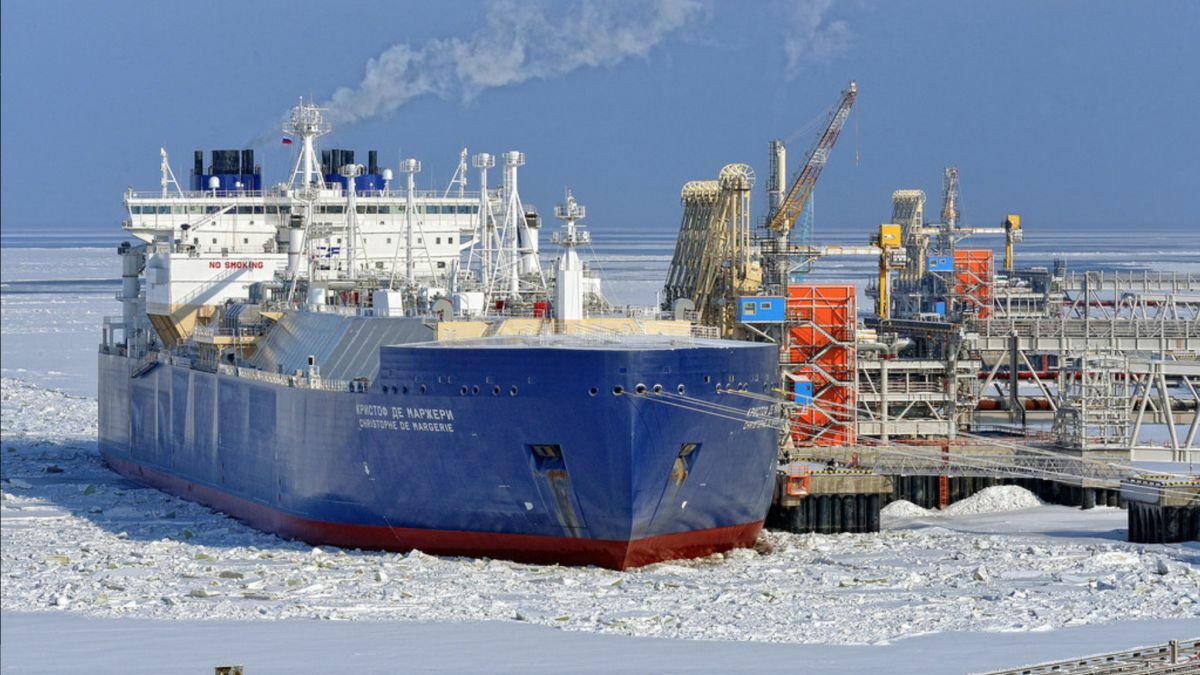Economy and business
France Talks Tough on Ukraine, But Funds Putin’s War with Gas Purchases

Two years after the start of the war in Ukraine, France has managed to survive without Russian oil, but not yet its gas. In the first three months of this year, deliveries of Russian liquefied natural gas (LNG) to France increased more than to any other European Union (EU) country since last year, according to “Politico” media, based on data from the Center for Energy and Clean Air Research (CREA).
In total, Paris has already paid the Kremlin more than 600 million euros for its gas supplies since the beginning of the year, according to CREA. It is a Cornelian dilemma for Bercy, which insists that these gas purchases are necessary to maintain supplies to European households-natural gas accounts for about 18 percent of France’s energy mix-and that it is legally difficult to escape the long-term agreement with Russia.
“By buying Russian gas, we are financing Vladimir Putin’s war.” The same Putin that French President Macron, in words, would like to intimidate with “strategic uncertainty” and by threatening to intervene directly in Ukraine.
Indeed, TotalEnergies has signed a supply contract tied to the Yamal project until 2032, which calls for the purchase of 4 million tons of Russian LNG each year until then. These are perfectly legal sales, which the energy company intends to continue “as long as European sanctions allow,” according to the French multinational’s director of exploration and production, who appeared before the French Senate at the end of March.
Of course, not importing this gas would amount to paying in a vacuum for TotalEnergies, since the famous take-or-pay contracts oblige the buyer to pay for a minimum amount of gas, whether it is consumed or not. But this increase in imports from the beginning of 2024 comes at a time when Emmanuel Macron is trying to take a harder line in favor of Kiev. This is a paradoxical position given the statements of Clément Beaune, then Secretary of State for European Affairs, who said that “by buying Russian gas, we are financing Vladimir Putin’s war.”
A few months after Russia’s attack on Ukraine in 2022, however, the EU unveiled a plan to end the bloc’s dependence on Moscow’s fossil fuel imports by 2027, with good results. Both by sea and pipeline, Russia’s share of EU gas imports fell from 46 percent in 2021 to 24 percent in 2022, then to 16 percent in 2023, behind Norway and the United States. For oil, the EU’s share fell from 28% to 5%.
Eight billion dollars will be paid to Moscow in 2023
But similar efforts to eliminate LNG have failed. Although this fuel accounted for only 5 percent of EU gas consumption last year, EU countries paid Moscow more than 8 billion euros for its exports in 2023, according to CREA. France has been the EU’s largest importer since the beginning of the year, but it is not the only culprit. Behind it, nine member states remain customers of Moscow’s gas, including Belgium, Spain and the Netherlands.
At a hearing before the Senate committee investigating TotalEnergies in early April, Bruno Le Maire said France has significantly reduced its dependence on Russian gas over the past two years. However, the French Economy Minister said that Russian gas imports will have to be eliminated “gradually to avoid too sudden an impact on the market” and an increase in prices, and stressed that gas is still an exception in European sanctions packages.
However, the issue is taking on the air of squaring the circle. In addition to TotalEnergies’ contract in Yamal until 2032, the energy company also owns 20 percent of the project. The French multinational remains a 19.4 percent shareholder in Novatek, Russia’s number two gas company, and still owns more than 10 percent of the Arctic LNG 2 liquefaction plant currently under construction in the Russian Arctic. TotalEnergies explains that it is unable to sell these shares because the majority shareholders are oligarchs close to the Kremlin who have been targeted by Western sanctions. The group has also stopped consolidating these






